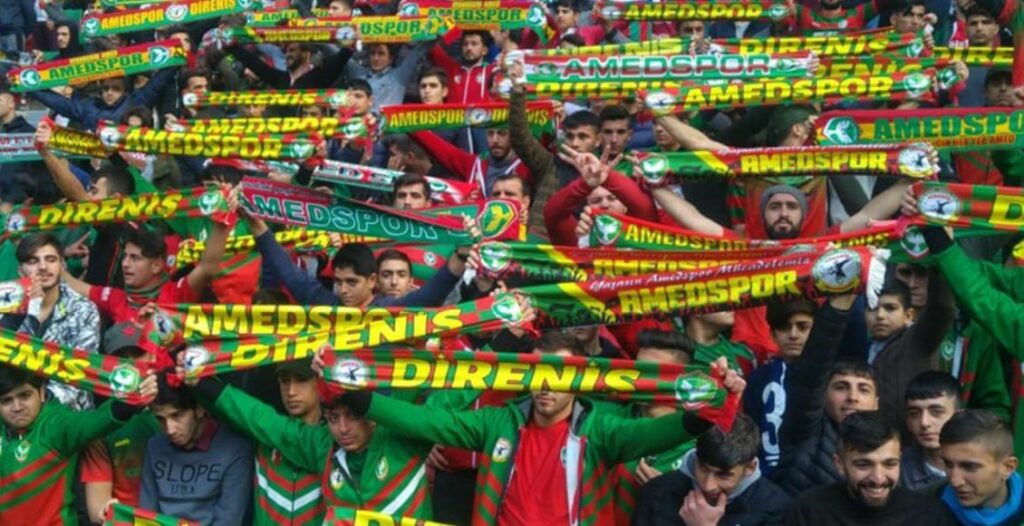The Turkish Football Federation (TFF) has lifted a seven-year ban on the away-game attendance of fans of Amedspor, a football team from the predominantly Kurdish province of Diyarbakır, which has been subjected to several racist attacks from the fans of other Turkish clubs, Amedspor has announced.
The second division club announced on Twitter on Thursday that there will be no ban on the attendance of its fans at its upcoming away game against Menemen football club in the western province of İzmir on Saturday. Authorities cited security concerns as the reason for the longstanding ban, which according to the fans was unfair and discriminatory.
DEPLASMANDA BULUŞUYORUZ!
20 Mayıs Cumartesi günü, saat 15:00'de İzmir Menemen Şehir Stadında oynayacağımız Menemen F.K karşılaşması için deplasman yasağı bulunmamaktadır. Misafir takım
biletleri maç günü gişeler de satılacaktır. Bilet fiyatı 40 TL olarak belirlenmiştir. pic.twitter.com/pq1NWFUopT— Amedspor (@amedskofficial) May 18, 2023
Amedspor fans have been able to attend only two of their team’s more than 100 away matches over the past seven years.
The controversial ban on Amedspor was imposed in 2016 shortly after the team changed its name in 2014 from Diyarbakırspor to Amedspor, as Amed refers to Diyarbakır in Kurdish. The football team has since then faced bans and several racist attacks during its away games by fans of other football clubs, especially those in Bursaspor, accusing them of supporting the outlawed Kurdistan Workers’ Party (PKK), listed as a terrorist organization by Turkey and much of the international community.
In the latest episode of tension between the two football clubs, Amedspor players were harassed during a match in Bursa in March. Bursaspor fans threw a variety of objects including knives, bullets and water bottles onto the pitch before the match began, while chanting racist slogans against Kurds.
Amedspor’s goalkeeper, who is actually a Turk, was slightly injured when hit by one of the objects thrown by Bursaspor fans onto the field.
Critics accused the authorities of allowing the violence to continue despite the fact that the lives of the Amedspor players were at risk and of failing to take any action against the Bursaspor fans.
It is common for Kurds in Turkey to face racist attacks and accusations of links to the PKK, which has been waging a bloody war in the country’s southeast since 1984.

